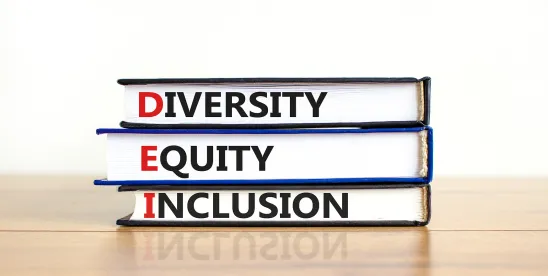On May 2, 2025, the United States District Court for the District of Columbia denied Plaintiffs’ Motion for a Preliminary Injunction in National Urban League et al. v. Trump, et al., 25-471, a case that seeks to halt enforcement of President Trump’s executive orders (“EOs”) related to diversity, equity, and inclusion (“DEI”), EO 14151 and EO 14173, as well as EO 14168, regarding so-called “Gender Ideology.” At this point two tribunals have ruled that the DEI-related EOs should not be enjoined pending legal challenges. (The other tribunal to take this position is the U.S. Court of Appeals for the Fourth Circuit which stayed a nationwide preliminary injunction of the DEI-related EOs issued by the District Court of Maryland.)
Government contractors are particularly interested in the DEI Certification provision in Section 3(b)(iv)(A) and (B) of EO 14173, which requires each agency of the government to include two terms in every contract or grant award: one requiring the counterparty “to certify that it does not operate any programs promoting DEI that violate any applicable Federal antidiscrimination laws,” and another requiring it to agree that compliance with those laws “is material to the government’s payment decisions for purposes of” the False Claims Act (“FCA”), 31 U.S.C. § 3729(b)(4). (We have previously done a deep dive on FCA liability premised on DEI programs.)
District Court: The DEI Certification Is Not Unconstitutionally Vague, Does Not Chill Protected Speech
The Court addressed Plaintiffs’ fear that the Trump administration will take a novel and overly broad view of “illegal discrimination” that will expose them to liability for DEI initiatives that are lawful under current judicial precedent but which the government might nevertheless target under existing antidiscrimination law. The Court said that this is “a concern with the interpretation of underlying antidiscrimination law—which Plaintiffs do not challenge—rather than the Certification Provision.” The Court said that an entity whose DEI program the government targets can, at that time, “contest whether their DEI programs fall within the scope” of applicable antidiscrimination laws.
The Court also stated that the DEI Certification provision does not chill protected speech because it only targets DEI programs that violate federal antidiscrimination law, and there is no First Amendment right to “operate such programs.” Thus, the Court aligned with the Fourth Circuit, which also noted that EO 14173 does not purport to establish the illegality of all efforts to advance DEI, only illegal efforts to advance DEI. In response to the argument that no one knows what illegal DEI means, the judge stated that the First Amendment does not require the government to preemptively identify programs or provide hypothetical examples of action that violates antidiscrimination law. In reaching this conclusion, the Court stated that it “respectfully disagrees” with the Northern District of Illinois which, in Chicago Women in Trades v. Trump et al., 1:25-cv-02005, partially granted a preliminary injunction and in so doing “faulted” EO 14173’s DEI Certification requirement for not clarifying “what might make any given DEI program violate Federal antidiscrimination laws.”
As for what it means to “promote” illegal DEI, the District Court for the District of Columbia simply looked to the Merriam-Webster dictionary, which clarifies that “[t]o ‘promote’ something is to contribute to its growth or prosperity.”
District Court: Good Faith Compliance with Antidiscrimination Law Diminishes FCA Risk
Given the potential for treble damages and civil penalties under the FCA, contractors and grantees are particularly concerned about the concession of materiality required by the DEI Certification. Plaintiffs argued that signing the DEI Certification could expose them to significant FCA liability for minor or technical violations, especially given that the government appears poised to adopt an aggressive and broad view of what counts as illegal discrimination.
The judge viewed this risk with skepticism. He pointed to the FCA’s scienter requirement, under which liability only attaches if a defendant submitting a false claim acted with knowledge, deliberate ignorance, or reckless disregard of the falsity of the claim. The Court specifically stated: “The False Claims Act…does not create liability for good-faith but mistaken beliefs that DEI programs comply with Federal law.” (Notably, this is the result we reached in our earlier analysis of this issue: “Where contractors are required already to comply with federal anti-discrimination laws, it seems likely that they hold a good faith belief that their DEI programs are consistent with, and not contrary, to those laws. We expect that the government will face significant hurdles in proving that contractors ‘knowingly’ engaged in ‘illegal’ DEI programs.”)
Key Takeaways for Federal Contractors
- Expect to See the DEI Certification:
At the moment, only the Department of Labor is enjoined from asking its contractors and grantees to sign the DEI Certification requirement.
- Confer with Counsel:
It is a good idea to confer with counsel about how to respond to the DEI Certification, particularly given that the certification language is not standard and can be customized by Contracting Officers.
- DEI Programs Are Not Per Se Illegal:
Even in decisions denying relief to plaintiffs, courts are making clear that not all DEI programs and not all efforts to promote diversity are illegal. Signing the DEI Certification does not compel an entity to end all DEI activities—the certification only targets DEI efforts that are already illegal under existing, applicable antidiscrimination law.
- Good Faith:
Contractors and grantees that act in good faith and have a good faith belief that their DEI programs comply with applicable antidiscrimination law may avoid liability under the FCA.
- Conduct a Privileged Review of All Existing DEI Programs:
The DEI Certification covers all DEI programs that an entity operates, even those outside of an entity’s federally funded programs. Therefore, now is a good time for a comprehensive, privileged review of DEI programs to ensure they comport with current anti-discrimination laws. Evaluating these programs through the more critical lens of the current administration can identify any aspects that should be amended to mitigate misunderstanding and risk. This review can also help establish good faith belief in the truthfulness of the DEI certification.



 />i
/>i

